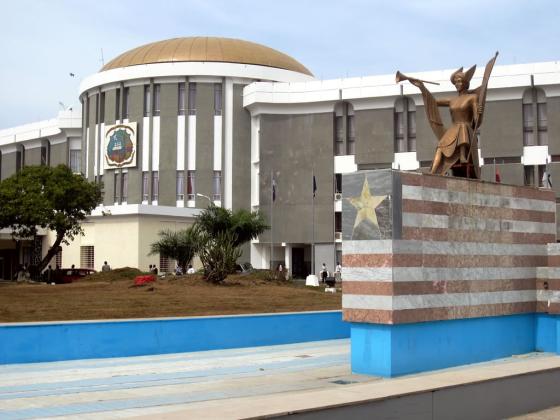Liberia: House Concerned about Flooding, Impacts

Capitol Building
— Summons Disaster Management, EPA, Land Authority, Mines and Energy Ministry
The House of Representatives is said to be concerned about flooding across the country, which has now become one of the most prevailing disasters in Liberia.
Members of the House complained that the alarming flood rate is significantly affecting the social and economic health of the country.
Unanimously, members of the House voted to summon the heads of the d the National Disaster Management Agency of Liberia (NDMA) the Environmental Protection Agency (EPA), Liberia Lands Authority, and the Ministry of Mines and Energy to appear before the August Body on 19 July 2022, to explain the potential cause of the level of flooding and how it can be handled.
The House’s decision was triggered following communication from Montserrado County District #16 Representative, Dixon W. Seeboe.
“For several years, communities have experienced flooding during the height of the rainy season, (June - September). However, the degree of flooding has gotten so intense in the past two years and this year is unprecedented beyond several. Considering the devastation that comes with flooding, if a national action plan is not designed and implemented, the buck of our people who live in their communities will continue to face hardship beyond their capacities."
Seeboe added that the invited agency needs to explain the potential cause of the level of flooding and how it can be handled; to also explain what is being done to those affected by the flood."
The impact of flooding in Liberia is severe as many of the worst affected are those living on wetlands, something which is prohibited by the Environmental Protection Agency. Heavy torrential rain sometimes leaves parts of Liberian capital Monrovia underwater -- creating traffic jams, especially on Bushrod Island.
In some slum communities, heavy rainfall and low elevations mean year-round flooding. According to the World Bank, while Liberia is prone to flooding, heavy rains, storm surges, sea level rise, and increased erosion, puts both urban and rural infrastructure at risk.
The Bank said heavily populated parts of the coast would be affected by frequent waterlogging, increased coastal erosion, and sea-level rise. This is likely to result in significant economic losses, infrastructure as well as human casualties.
“Projected increases in rainfall and floods, Climate change is also expected to increase risks and severity of natural disasters in Liberia, through more intense temperatures as well as rainfall patterns, increased temperatures, and prolonged heat waves.”
